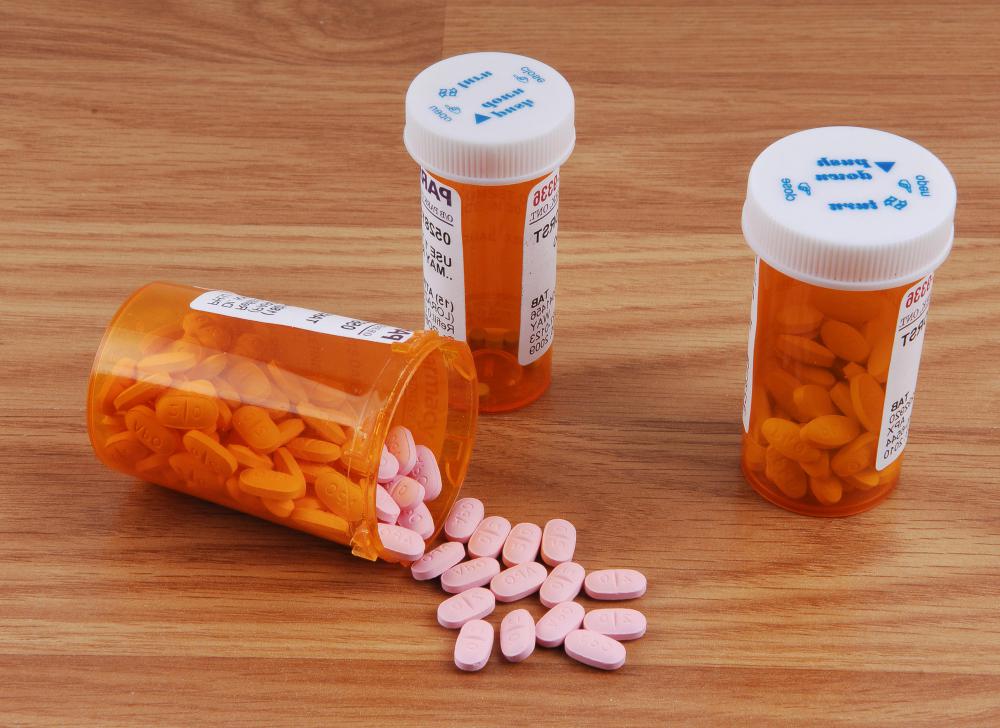At WiseGEEK, we're committed to delivering accurate, trustworthy information. Our expert-authored content is rigorously fact-checked and sourced from credible authorities. Discover how we uphold the highest standards in providing you with reliable knowledge.
What is a Pharmaceutical Reimbursement?
A pharmaceutical reimbursement is the money insured people get back after purchasing prescriptions. The different types of pharmaceutical reimbursement include Medicare drug reimbursement, insurance company reimbursement, and pharmaceutical manufacturer reimbursement. Depending on the drug purchased, the insured may be eligible to file for all three.
When a person has medical insurance, it often includes coverage for medications. The medications must be for a verified illness or chronic condition covered under the policy. Experimental drugs for certain types of cancer may not be covered or only covered at a reduced rate. The amount eligible for reimbursement is also different for generics versus brand name drugs. Since each policy has different restrictions and deductibles that must be met, companies typically provide annual health care packages to their employees that outline what coverage is available.

Insurance company reimbursements are provided once the insured files a pharmacy reimbursement claim. The pharmacy will provide a detailed receipt that includes the name and address of the patient, the drug being prescribed, the daily dosage, and the cost. The insured then files this information with his insurance company to get reimbursed the amount of out-of-pocket expense.

In many cases, the insurance company has a predetermined amount of coverage for each medication and the pharmacy will charge only that amount when the medication is picked up. In those cases, there is no additional pharmaceutical reimbursement to the insured. The exception is when the insured has a health care spending account, which is a deposit account where money is set aside from pre-tax earnings to pay for approved medication and other medical expenses.

Medicare pharmaceutical reimbursement works much the same way as insurance company reimbursements with the main difference being the insurer is the federal government. If a person is of retirement age, she has the option of getting Medicare. For people still employed and receiving insurance company benefits, pharmaceutical reimbursement must first go through the insurance company then Medicare pays the difference. There are still preset annual deductibles each insured person must first meet and also maximum amounts for yearly payments. The pharmaceutical reimbursement claim is filed with Medicare along with the information regarding balances owed after the insurance company pays the initial claim.

In some cases, manufacturers will offer a pharmaceutical reimbursement when offering new products. This may be because the insurance companies or Medicare do not cover a large portion of the cost or because the manufacturer wants to have a greater pool of patients using their drug. The manufacturer will reimburse the patient for a set amount of the cost of the prescription via a rebate check or coupon that can be used for a discount off the next prescription.
AS FEATURED ON:
AS FEATURED ON:















Discuss this Article
Post your comments